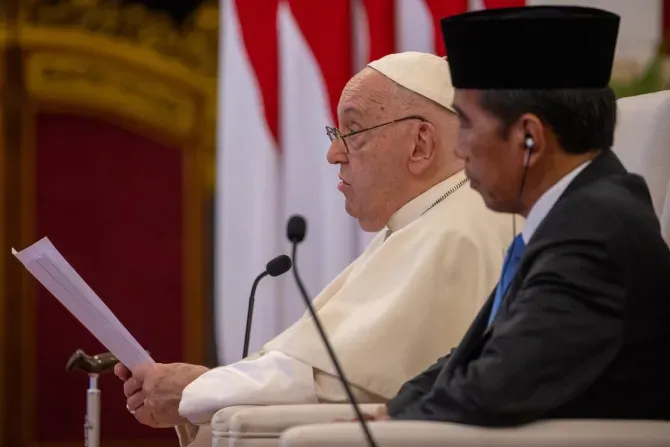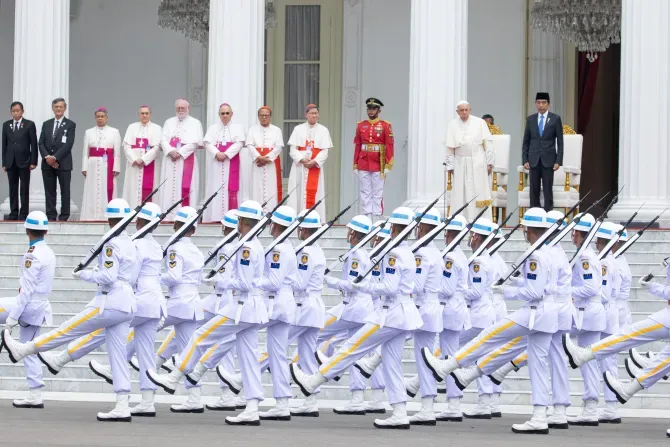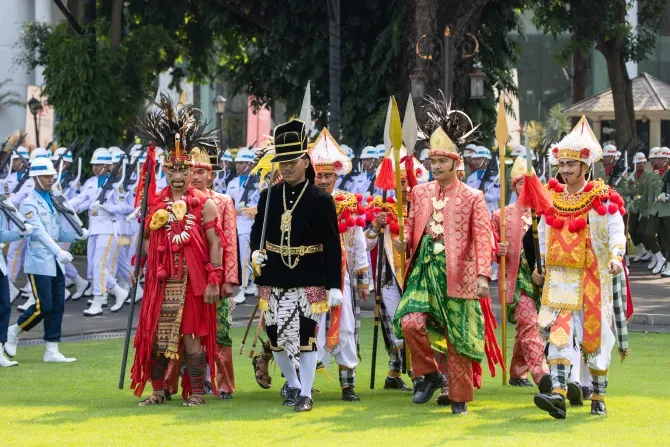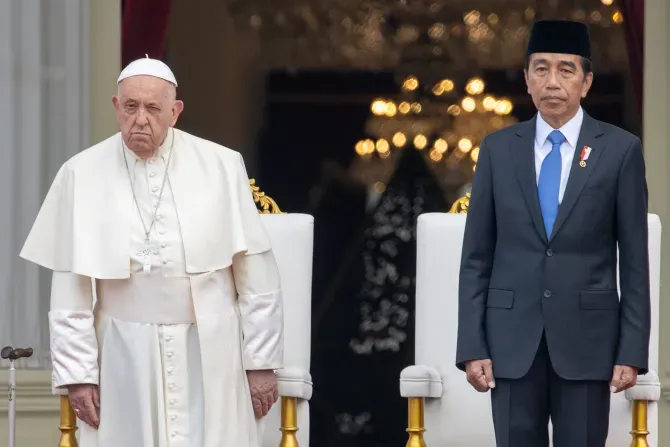Jakarta, Indonesia, 03 September, 2024 / 7:49 pm (ACI Africa).
On Pope Francis’ first full day of public appearances in Indonesia on Wednesday, the pope called upon the political leaders of the world’s largest Muslim country to protect the country’s delicate balance of many cultures and religions by respecting the human rights of all, including minorities.
“In order to foster a peaceful and fruitful harmony that ensures peace and unites efforts to remove the imbalances and suffering that still persist in some areas of the country, the Church desires to increase interreligious dialogue,” Pope Francis said in his opening speech on Sept. 4.
The pope was welcomed to the Indonesian capital of Jakarta by a grand ceremony at the Merdeka Palace, official residence of the Indonesian president. The ceremony marked the start of the pope’s highly anticipated 11-day visit to four countries in Southeast Asia and Oceania.
Children waved flags and cheered as the pope’s car approached the palace. The 87-year-old pope was then pushed in a wheelchair to the palace entrance, where he was received by President Joko Widodo and saluted by an honor guard dressed in red and white.
The first visit by a pope to Indonesia in three decades comes at a pivotal moment for the Southeast Asian country, which is home to the world’s largest Muslim population. Pope Paul VI visited Indonesia in 1970, and Pope John Paul II in 1989.











